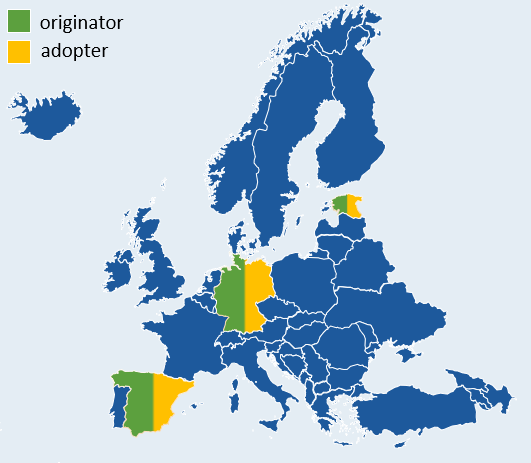The partners from DigitalHealthEurope’s twinning Data Matters exchanged knowledge on data integration, data infrastructure and data analysis. Results will be presented at the AAL Forum 2021. Integrated, value-based care can only be delivered based…
Twinning solution
Twinning type
Main policy priority
Originator
Adopter(s)
Short description
Data Matters aims at making use of expanding data gathering initiatives in order to share experience and learn from other regions’ expertise.
For this purpose, the twinning brings together four players from three member states (Spain, Estonia, and Germany) that all have done important steps in relation to integrating data and making it useful for care improvement, but who at the same time have a clearly defined need to learn from others and improve and expand upon what they are already doing.
The twinning will consist of three technology learning hubs on data infrastructure, data integration, and data analysis where all partners can both teach and learn based on their own profiles and demand. The twinning will be accompanied by dedicated dissemination measures on regional, national and international levels to make the learnings available to a wide audience. Also, the partners will use a benchmarking approach for health data structure readiness to assess the progress generated by the twinning. To this end, existing benchmarks will be amalgamated to arrive at a suitable instrument for this purpose.
